
 Flash News
Flash News
Powerful explosions in Tel Aviv and Jerusalem, Iran attacks with over 100 missiles
Car catches fire in Bulqiza, driver and passengers rescued
Fire in Berat, a bushy area is engulfed in flames
Albanian immigrant pulled them out of the river, the two children couldn't make it out, they suffered clinical death
SPAK would present the bimonthly report on the investigations against Veliaj, the hearing at the GJKKO is postponed
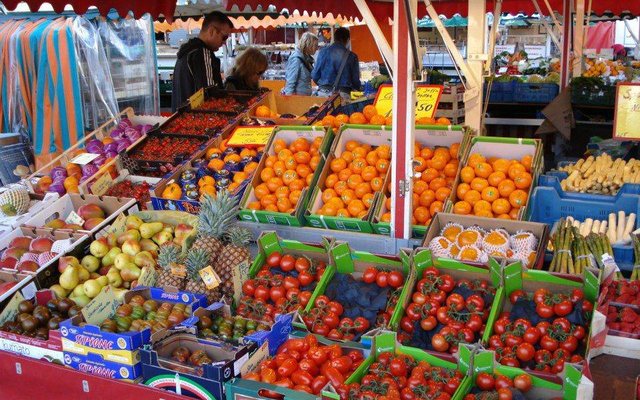
This end of the year, Albania turns out to be one of the countries with the highest inflation in Europe. Unlike the EU countries where prices are decreasing at a fast pace, the opposite is happening in Albania. INSTAT reported that inflation in November was 3.9%, while in the EU this indicator was 2.4%. Referring to official figures, vegetables, fruits, dairy and meat are the most expensive products in the basket. The rapid increase in prices has put Albanian families in difficulties, but experts do not expect a decrease even next year.
Albania is one of the countries with the highest food prices in the region and Europe. This end of the year, found Albanian families in economic difficulties.
I'm not thinking about the party or anything. I have been out of work for over a year and we live on only a minimum wage, six people.' , says Silvana Laçi, mother of four children from Tirana.
Silvana lives with her family in a rented apartment in Shkoza. The only income of the family of six is from her husband who earns a minimum wage.
'We can't even feed ourselves with his money. We have nothing left but to pay rent, electricity and water. To be honest, the weaker I am, the worse I am, I have nowhere to go.' , says Silvana for Faktoje.
Although we are the last country in Europe in terms of income per capita, the prices of consumer goods in Albania are not decreasing, as in the countries of the European Union. Official data from Eurostat show that average inflation in the EU reached 2.4% in November. In Albania, this indicator was 3.9% for the same month.
Referring to official data, inflation in the eurozone countries has fallen at a fast pace, especially in the last two months. While in Albania, the decrease is not being reflected at the same rate, leaving the country among the countries with the highest inflation in Europe.
Data from the Institute of Statistics show that during November, the increase in prices was influenced by food and non-alcoholic beverages. In other words, Albanians are paying more and more every day to feed themselves. Referring to official figures, vegetables, fruits, dairy and meat are the most expensive products in the basket.
Just to buy a kilogram of milk, cheese and meat, we would need a minimum of 2,600 ALL.
Statistically, compared to a year ago, the cost of living this year is lower. But this difference is not felt in citizens' pockets, as prices are increasing faster than salaries and pensions.
In an observation by Faktoje, on Tuesday, December 26, in some of the main fruit and vegetable markets we found many products, but few buyers.
To buy one kilogram of all these products, we would need at least 2500 ALL.
“Mos e pyet se na zë koka kur kujtojmë se sa janë shtrenjtuar.”, thotë një grua rreth të 60-ve teksa po bën pazaret e ditës.
Çmimet ishin thuajse njësoj në të gjitha tregjet e fruta perimeve, me disa përjashtime të vogla.
Bujar Pëllumbi tregton fruta dhe perime pranë rrugës së Elbasanit në Tiranë. Çmimet aty ishin më të lira se në pikat e tjera vetëm pak metra larg tij. Sekreti sipas Bujarit ishte tek filozofia që e udhëheq biznesin e tij.
“Unë kam zgjedhur të mbaj çmime më të lira, kështu do punoj pak më shumë, por do fitoj njësoj me ata të tjerët që shesin më shtrenjtë. Në vend që të shesësh një arkë me banane, unë shes tre dhe fitimin e kam të njëjtë me atë që e mban shtrenjtë. Kështu kemi fituar dhe klientë besnikë”, tregon ai, teksa pranon se çmimet nuk kanë ndonjë ndryshim madhor krahasuar me fundvitin e kaluar.
“Pak a shumë njësoj janë, si vjet. Por blerjet e fundvitit ende s’kanë filluar, njerëzit i lënë për ditët e fundit. Dhe aty fillon abuzimi me çmimet.”, thotë Bujari.
Eksperti i ekonomisë, Eduard Gjokutaj thotë se në Shqipëri inflacioni nxitet nga problemet strukturore të ekonomisë, ku prodhimi, veçanërisht ushqimi, është në një ofertë më të ulët se kërkesa.
“Problemet që lidhen me prezencën masive të informalitetit, mungesa e një tregu plotësisht të lirë, niveli i lartë i korrupsionit në dëm të tregut ligjor, problemet e mprehta me strukturimin dhe modelin e biznesit, politika polarizuese dhe shfaqje të qasjeve klienteliste në politikën fiskale duke demtuar parimet e taksimit te ndershëm, institucione qendrore me pavarësi dhe integritet të cunguar, të gjitha së bashku nuk mundësojnë dot funksionimin e skemës për uljen e inflacionit dhe rritjen e ekonomisë dhe mirëqenies.”, argumenton Gjokutaj teksa shton se nuk pret ulje të çmimeve edhe vitin e ardhshëm.
“Nëse çmimet do të kishin patur sadopak ulje, (edhe nëse do të ishin me të njëjtat nivele si të një viti më përpara), atëherë edhe tregu që varet nga importet do të kishte një qarkullim më të lartë, duke shfrytëzuar mundësitë e një euro më të dobët, për të rikuperuar rritjen e çmimit të blerjes së mallrave nga importi. Fatkeqësisht nuk ndodh kështu dhe bizneset shqiptare me treg të kufizuar synojnë që të shfrytëzojnë çdo mundësi jo në favor të konsumatorit, por të biznesit të tyre.”
Ndërsa, Ines Nurja, ish drejtuesja e Institutit të Statistikave sqaron se ndryshe nga Europa, në Shqipëri ushqimet zënë peshën kryesore të inflacionit.
“Në Europë është dukur sikur nuk janë rritur çmimet, sepse ushqimet nuk përbëjnë pjesën kryesore të shportës. Në Shqipëri, pjesa kryesore e shportës janë ushqimet. Dhe ndaj tek ne është dukur sikur ka qënë inflacioni tepër i lartë. Çmimet e ushqimeve edhe në Europë janë kudo të rritura, por ato nuk e kanë ndier, sepse ushqimet tek familjet europiane zënë po themi 20% të buxhetit të tyre.
But as experts do not expect a price reduction next year, the Bank of Albania predicts that inflation will return to the 3% target at the end of next year. /Faktoje.al
Latest news


Israel confirms US support for the neutralization of missiles by Iran
2025-06-13 22:37:44

Foods you should avoid after your 40s for health
2025-06-13 22:05:07
Possessive and toxic, get to know the 3 most jealous signs of the horoscope
2025-06-13 21:51:58
Poland: A Russian plane violated our airspace!
2025-06-13 21:40:15



Tragedy in Kurbin/ Fire engulfs pig barn, 450 pigs burned alive
2025-06-13 20:40:44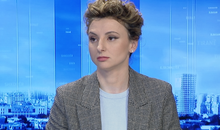
Xixho: Without functional democracy, EU integration remains an illusion!
2025-06-13 20:27:45
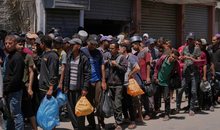
UN: Gaza aid group has failed in its mission
2025-06-13 20:04:32

BIRN: Half of Albanians have a gross salary of less than 62 thousand lek!
2025-06-13 19:31:41
Revenge warned/ Iran raises red flag over mosque, consequence of Israeli attacks
2025-06-13 19:23:10
Albanian man killed in metro station, two Englishmen found guilty
2025-06-13 19:08:41
How recommended is a midday nap for health?
2025-06-13 19:01:58

Serious in Italy/ Albanian stabs 23-year-old in Ravenna, escapes on motorcycle
2025-06-13 18:18:57
Car catches fire in Bulqiza, driver and passengers rescued
2025-06-13 17:59:20
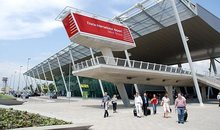
Attacks on Iran/ Tirana-Tel Aviv flights canceled, embassy closed
2025-06-13 17:35:45
Apple warns again: Don't sleep with your iPhone while charging!
2025-06-13 17:20:31
Albanian youth raped worker in Greece, surrenders to police (NAME)
2025-06-13 16:59:50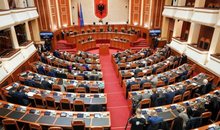
Plenary session in the Parliament on Monday, what will be discussed?
2025-06-13 16:42:10


Fire in Berat, a bushy area is engulfed in flames
2025-06-13 16:06:18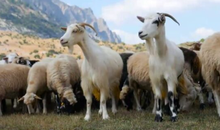



Israeli attacks, Trump calls on Iran: A deal must be made, before it's too late
2025-06-13 15:19:21

Israel's attacks on Iran raise oil prices worldwide
2025-06-13 14:56:37
The Kosovo Assembly is not constituted even in the 31st attempt
2025-06-13 14:41:24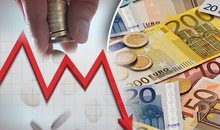
Euro hits 'bottom', European currency drops to new historic low
2025-06-13 14:30:28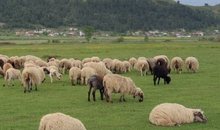
First outbreak of small cattle plague confirmed in Korça
2025-06-13 14:19:51
Kiara Tito "in mourning", experiences great pain: I will always miss your voice
2025-06-13 14:13:47


Trump warns Iran to accept nuclear deal before 'even more brutal' attacks
2025-06-13 13:55:25
Iran appoints new commanders after Israel kills military leaders
2025-06-13 13:39:28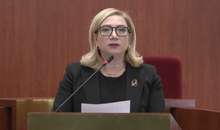


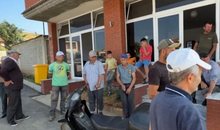
Maliq farmers protest
2025-06-13 13:03:07
KAS accepts the DP's request, decides to recount the votes in Gramsh and Peqin
2025-06-13 12:46:14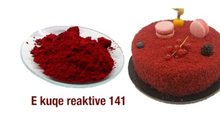



Bennett who sealed the political "deflowering" of SPAK
2025-06-13 12:21:27
Lied to FBI about Charles McGonigal's connections, Former Diplomat Pleads Guilty
2025-06-13 12:10:56

The strange world of justice
2025-06-13 11:55:10
SPAK reports today to the GJKKO the two-month investigation into Erion Veliaj
2025-06-13 11:39:30

40-year-old arrested for stealing hospital employees' bags
2025-06-13 11:21:09


Tabaku: We cannot behave like Europeans in Brussels and like autocrats in Tirana
2025-06-13 10:49:00
International Atomic Energy Agency: Iran's main nuclear plants not hit
2025-06-13 10:36:12
AMP punishes three "Eagles" officers, suspends them from duty
2025-06-13 10:28:13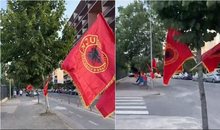


Flights in the Middle East canceled after Israeli airstrikes on Iran
2025-06-13 09:53:02
Halit Valteri appears in SPAK, why was he summoned?
2025-06-13 09:39:50


These Horoscope Signs Will Have Lots of Luck During the Summer
2025-06-13 09:13:00

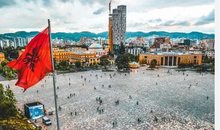

What are Iran's nuclear ambitions and why are they so controversial?
2025-06-13 08:38:03
Donald Trump convenes cabinet after Israeli attacks on Iran
2025-06-13 08:24:44
Foreign exchange, the rate at which foreign currencies are sold and bought
2025-06-13 08:16:58
Albanian investments abroad slowed down in the first quarter of the year
2025-06-13 08:06:34
Çfarë ndodh në organizëm nëse hani një thelpi hudhër në darkë
2025-06-13 08:00:48
Israel attacks Iran, targets nuclear plants and military commanders
2025-06-13 07:46:14
Temperatures up to 36 degrees, as the weather forecast for today
2025-06-13 07:33:10
Horoscope June 13, 2025, what the stars predict
2025-06-13 07:15:37
Morning Post/ In 2 lines: What mattered yesterday in Albania
2025-06-13 06:59:27
Car goes off the road on the "Tirana-Lezha" axis, 4 injured
2025-06-12 23:03:47
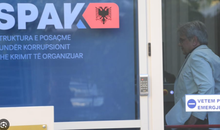
Document/ Benet Beci was taken into custody by SPAK before the elections
2025-06-12 22:52:12








Montenegrin Army to train Ukrainian soldiers
2025-06-12 20:13:45
Italia në alarm, zgjebja po përhapet me shpejtësi
2025-06-12 20:11:39

Dua Lipa gets engaged: I'm happier than ever with Callum Turner
2025-06-12 19:44:29

Around 29,000 Albanians left last year, INSTAT estimates
2025-06-12 19:31:23
